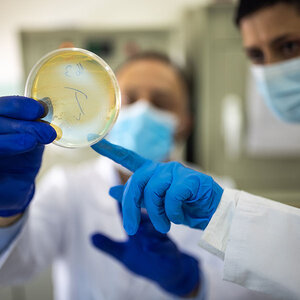Global HIV/AIDS Funding Gap Growing, Report Finds
Despite increases in funding for HIV/AIDS, official estimates suggest that a considerable financing gap remains and will likely grow over time, a report from the Kaiser Family Foundation finds.
An estimated 39.4 million people are living with HIV/AIDS worldwide, with an estimated 4.9 million people becoming infected in 2004 alone. According to the report, Financing the Response to HIV/AIDS in Low and Middle Income Countries: Funding for HIV/AIDS from the G7 and the European Commission, contributions by donor countries, primarily in the form of bilateral aid agreements and donations to the Global Fund to Fight AIDS, Tuberculosis and Malaria, have risen significantly over the past several years. The World Bank also has provided substantial funding, as has the private sector — foundations, corporations, international non-governmental organizations, and individuals. Nevertheless, while funding from all sources rose from $300 million in 1996 to $6.1 billion in 2004, the report found that many governments in the developing world still must allocate domestic resources to combat the epidemic in their countries, with households and individuals within these countries often shouldering some, if not much, of the financial burden.
The report, released at a briefing hosted by the Kaiser Family Foundation, the Center for Strategic and International Studies, and the Council on Foreign Relations, also discusses the concept of "fair share," or what might be considered an appropriate level of funding from donor governments, and examines different methodologies for assessing fair share among donors.
To read or download the complete report (20 pages, PDF), visit: http://www.kff.org/hivaids/loader.cfm?url=/commonspot/security/getfile.cfm&PageID=54384.








